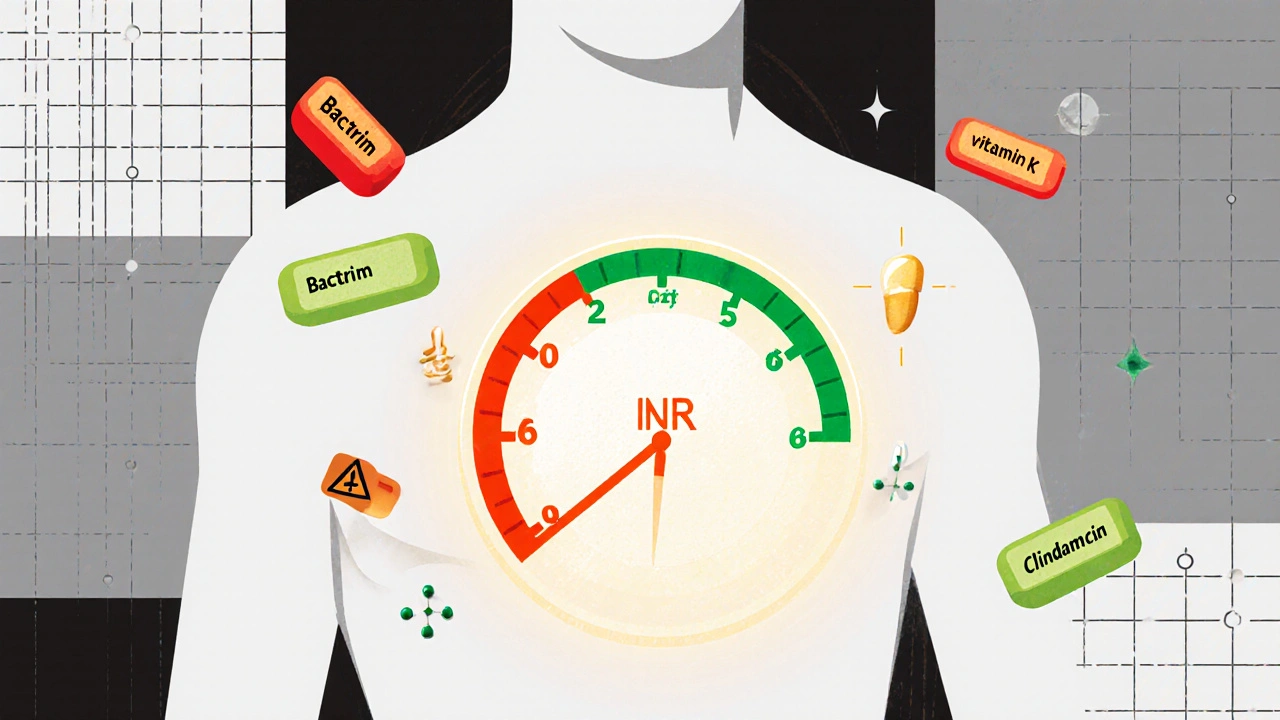Warfarin Interactions: What You Need to Know About Drugs, Food, and Supplements
When you take warfarin, a blood thinner used to prevent clots in people with atrial fibrillation, artificial heart valves, or deep vein thrombosis. Also known as Coumadin, it works by blocking vitamin K’s role in clotting—but that’s also why so many things can interfere with it. A small change in your diet, another medication, or even a herbal supplement can throw off your INR levels, putting you at risk for a stroke or dangerous bleeding. This isn’t theoretical—it’s why people on warfarin end up in the ER more often than with almost any other prescription drug.
Warfarin doesn’t work in isolation. It’s affected by vitamin K, a nutrient found in leafy greens that directly opposes warfarin’s effect. Eat a big salad one day and a burger the next? Your INR could swing wildly. Then there’s alcohol, which can increase bleeding risk and mess with how your liver processes warfarin. Even over-the-counter painkillers like ibuprofen or naproxen can raise your chance of internal bleeding when taken with warfarin. And don’t forget supplements: garlic, ginkgo, and fish oil all thin the blood too—adding them to warfarin is like double-tapping a trigger.
Some antibiotics, antifungals, and even heart medications can make warfarin stronger or weaker. One study showed that amiodarone, a common heart rhythm drug, can double warfarin levels in the blood. Meanwhile, rifampin, used for tuberculosis, can make warfarin useless. That’s why your doctor checks your INR every few weeks—it’s not just routine, it’s lifesaving. You don’t need to avoid all these things forever, but you do need to be consistent. Keep your vitamin K intake steady. Tell every new doctor you’re on warfarin. Don’t start or stop any supplement without asking. Small habits make the biggest difference.
What you’ll find below are real, practical guides from people who’ve been there: how caffeine affects warfarin, why antacids can interfere with absorption, how antibiotics change your clotting time, and what to do if you accidentally take something risky. These aren’t theory pages—they’re the kind of advice you’d get from a pharmacist who’s seen too many warfarin mishaps. Read them. Save them. Use them.

Managing Warfarin and Antibiotics: Common Interaction Issues
- Nov, 1 2025
- 9
Warfarin and antibiotics can interact dangerously, raising bleeding risk. Learn which antibiotics are safest, when to check your INR, and how to avoid serious complications without stopping your medication.
Categories
- Health and Medicine (65)
- Health and Wellness (57)
- Medicine (37)
- Women's Health (11)
- Mental Health (10)
- Men's Health (7)
- Beauty and Wellness (4)
- Health Information (4)
Archives
- March 2026 (1)
- February 2026 (11)
- January 2026 (25)
- December 2025 (28)
- November 2025 (25)
- October 2025 (27)
- September 2025 (14)
- August 2025 (3)
- July 2025 (2)
- June 2025 (2)
- May 2025 (3)
- April 2025 (4)
- online pharmacy
- medication safety
- dietary supplement
- health benefits
- dietary supplements
- generic drugs
- prevention
- fertility
- online pharmacy Australia
- side effects
- QT prolongation
- medication side effects
- diabetes medications
- GLP-1 agonists
- nocebo effect
- brand vs generic
- treatment
- treatment options
- benefits
- connection
